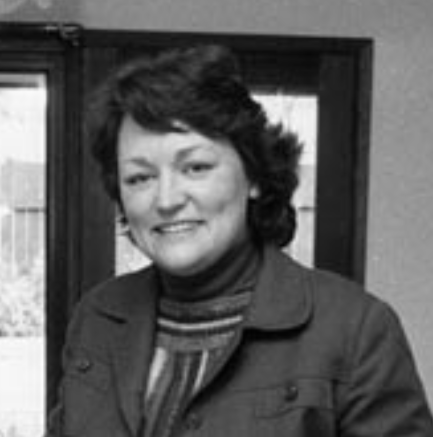- Entry type: Person
- Entry ID: AWE24081179
Horder, Maurene
- Birth name Horder, Maureen

- Born 23 November 1950, Sydney, New South Wales, Australia
- Occupation Migrant community advocate, Parliamentarian, Teacher
Summary
Maurene Horder was elected to the first Australian Capital Territory House of Assembly at its election in 1979. Representing the Australian Labor Party, she was one of the nine members from the electorate of Canberra. She was re-elected in 1982 but resigned in mid-1985 to take up an appointment as a ministerial advisor. Before entering the Assembly Horder was a primary school teacher and a public servant.
Details
Maureen Horder was the fifth of nine children born to Mary (neé Brown) and Mervyn Horder and was raised in Cabramatta, attending Bethlehem College in Ashfield. Her mother was an elected member and deputy mayor of the Fairfield Council in the 1970s and 1980s and her father was a postal worker. After completing her teacher-training at Salisbury Teachers’ College Horder taught in Brighton-Le-Sands. She moved to Canberra in 1972 and worked as a public servant in Treasury and the Department of Education and completed a Bachelor of Applied Science (Applied Geography) degree at the Canberra College of Advanced Education. She changed her name from Maureen to Maurene by deed poll in the 1970s. In 1976 she married a demographer, Dr Graham Harrison (1949-2000) and their two children, Adrian and Virginia Harrison, were both born while she was a member of the Assembly. They lived in the suburbs of Garran, Swinger Hill and Holder.
Horder was one of the eight ALP members elected to the part-time 18-member ACT House of Assembly at the election held on 2 June 1979. In the First Assembly (1979-1982) the ALP, with the support of the two Australian Democrat members and two independent members, gained a majority and was thus able to elect its President and to fill the plum positions representing the Assembly on ACT statutory and non-statutory bodies. Horder was appointed to the ACT Schools Authority and to the Canberra Week Committee, and was a member of the Assembly Standing Committees on Education and Finance.
Horder made substantial contributions to the debate and criticisms of the Galbally Report, Migrant services and programs: report of the Review of Post-arrival Programs and Services for Migrants, tabled in the Commonwealth Parliament in May 1978. She felt there had been very little consultation with the ACT community on the provision of education programs for newly-arrived migrants, particularly for children and women.
Other matters Horder discussed in the Assembly in her first term included the staffing formulae for ACT government schools, the need for a commercial tenancy disputes tribunal, and the poor quality of broadcasting services and programs for children in the ACT. She opposed the introduction of tertiary fees and with a Liberal member of the Assembly, Liz Grant, she presented a report on rape law reform.
At the election on 5 June 1982 for the second Assembly the Liberal Party, together with the ultra-conservative Family Team, was able to form a majority, so Horder’s position on the ACT Schools Authority ended, although she was appointed to a new Police Liaison Committee to promote community involvement with policing. In a surprise move on 7 March 1983 Horder was elected leader of the ALP caucus, defeating Ken Doyle. The Hawke Government had been elected days earlier and it was believed that the new leadership would be able to build a closer relationship with the new federal government and with the incoming minister with responsibilities for the ACT.
During the second Assembly (1982-1986) Horder was a delegate to the National Economic Summit in April 1983, convened by the newly-elected Hawke Government. She was active in opposing the closure of Watson High School, supporting measures to reduce the road toll and the campaign to keep the Belconnen Mall in public hands. She was one of the Assembly’s two delegates to the Constitutional Convention held in Adelaide in April 1983 and was a member of the Assembly’s Standing Committees on Business, on Development and Planning, and on Health, Housing and Welfare. In August 1984 Horder led a delegation to the Northern Territory, as chair of the Assembly’s Select Committee on the Transition of Power to a Territorial Government, for discussions with that Territory’s administrators. When foreshadowing the tabling that committee’s report in the Assembly Horder called for the federal government to release its White Paper on self-government as soon as possible. Further frustration with the difficulties, delays in providing a timetable and the lack of details from the federal government, coupled with the announcement by the Minister for Territories that the term of the Assembly would be extended by another year, contributed to Horder’s resignation from the Assembly on 24 June 1985. The following day her appointment as ministerial adviser to the Honourable Christopher Hurford MP, Minister for Immigration and Ethnic Affairs, was announced, a position she held until the following year.
Within the ACT Branch of the ALP Horder was elected Vice-President at its annual conference in June 1980 and President in June 1981, retiring at the June 1982 conference. She stood unsuccessfully for ALP preselection for the federal seat of Fowler before the 1984 election and was also unsuccessful in gaining endorsement for the ALP for the by-election for the State seat of Liverpool in 1989.
Horder left Canberra in 1985 and held the following positions:
1990 – 1998 Southeast Australian Manager, Plastics and Chemical Industries Association
1999 – 2008 CEO, National Marine Safety Committee
2008 – 2013 CEO, Migration Institute of Australia and a member of the Migration Registration Authority
2014 – 2015 Executive Officer (NSW), Planning Institute of Australia
Horder has also served on the boards of Sunnyhaven Disability Services, the National Standards Development Organisation, and Clean-up Australia.
Published resources
-
- Maurene Horder, Wikipedia entry, https://en.wikipedia.org/wiki/Maurene_Horder